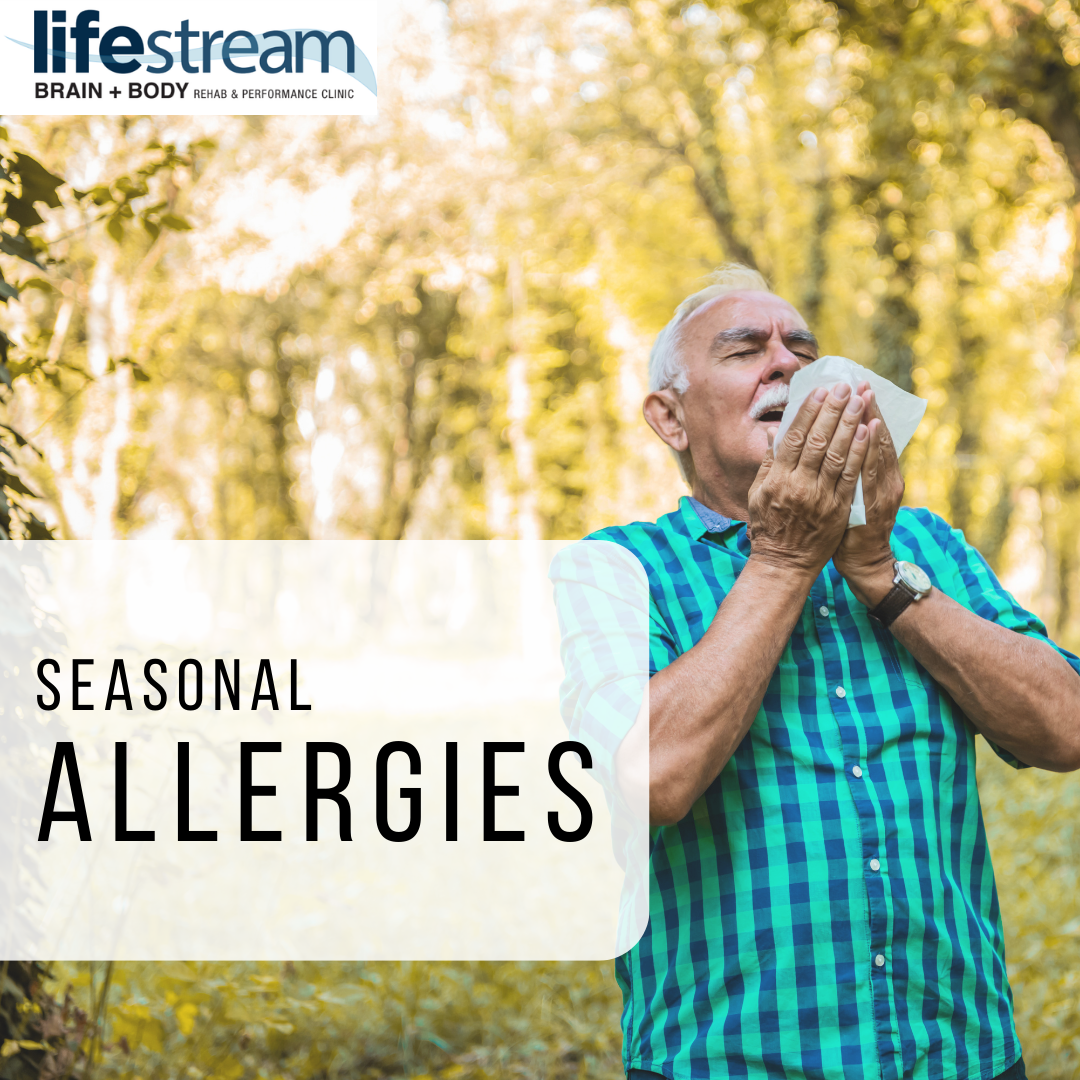Seasonal Allergies
What causes my seasonal allergies and what can I do to suppress the symptoms?
Many people suffer with seasonal or year-around allergies and know the all-too-familiar feeling of the tightness in your chest, the itchiness around your eyes, and the constant stuffy nose. Many people I’ve talked to have said that their allergies have been worse this season. What causes seasonal allergies and is there a way that you can support your body and suppress the allergic reaction?
With any sort of allergy- pollen, food, medications, etc. – the body has the same reaction. Our body’s immune system is designed to recognize foreign substances known as antigens that it recognizes as potentially harmful. It then launches an attack on that substance by releasing a series of chemicals that result in the symptoms associated with a sickness (fever, cold symptoms, etc.). This is good when we encounter viruses and bacteria that are not welcome. However, when the immune cells in our body mistakingly identify a normal substance as a harmful, foreign invader, it launches an attack when the substance itself may not be harmful. An allergy is an overactive immune response to a substance that it determines is harmful but is not to the normal person.
If you suffer from seasonal allergies, it is likely due to the pollen released from trees, grasses, and weeds. There are a number of things you can do like monitor pollen counts or avoid going outside or being near plants you know you’re allergic to in order to control symptoms. For mild allergies, doctors will often prescribe antihistamines or nasal decongestants to manage symptoms. In more severe cases, your doctor may give you a stronger medication or give you shots to reduce the severity of the reaction.
What can you do to support your body and improve its immune reaction?
There are a number of nutrients (not limited to the ones listed below) that are essential in a properly functioning immune system. Supporting your body’s own immune system might help to lessen the reactivity that you might be experiencing.
– Vitamin D: Vitamin D plays an important role in many body functions including the immune system. Vitamin D helps to prohibit the action of pro-inflammatory chemicals that are key players in allergic reactions.
– Vitamin C: While vitamin C is known for its role in the immune system, studies are showing that vitamin C may help reduce symptoms of allergies: decreasing oxidative stress, inflammation, and slowing the release of histamines.
– Omega 3’s: It’s not surprising that omega 3 fatty acids make this list as we have talked before about their anti-inflammatory properties. However, omega-3’s have also been shown to decrease the risk of seasonal allergies.
– Vitamin E: Vitamin E also has anti-inflammatory properties, and has been shown to help suppress overactive immune responses.
While there are other supplements that are showing promising results for treating and managing allergies, starting with making sure your diet is providing adequate nutrients to supports its systems is always a good place to start.
Visit www.lifestreamclinics.com to schedule an appointment with one of our doctors today!
Sources:
https://www.ncbi.nlm.nih.gov/books/NBK27098/#:~:text=Antigen%20recognition%20by%20B%20cells,together%20in%20the%20folded%20protein.
https://www.betterhealth.vic.gov.au/health/conditionsandtreatments/allergies
https://www.nhsinform.scot/illnesses-and-conditions/ears-nose-and-throat/allergic-rhinitis
https://magazine.medlineplus.gov/article/what-triggers-seasonal-allergies
https://aafa.org/allergies/types-of-allergies/pollen-allergy/
https://www.bvhealthsystem.org/expert-health-articles/seasonal-allergies-a-month-by-month-guide
https://fullscript.com/blog/supplements-for-allergies
https://pubmed.ncbi.nlm.nih.gov/17035339/
https://www.ncbi.nlm.nih.gov/pmc/articles/PMC4154631/
https://www.ncbi.nlm.nih.gov/pmc/articles/PMC6136002/
https://www.nature.com/articles/1602213
https://nutritionguide.pcrm.org/nutritionguide/view/Nutrition_Guide_for_Clinicians/1342070/all/Allergic_Rhinitis_and_Rhinosinusitis
https://erj.ersjournals.com/content/22/5/772.long

